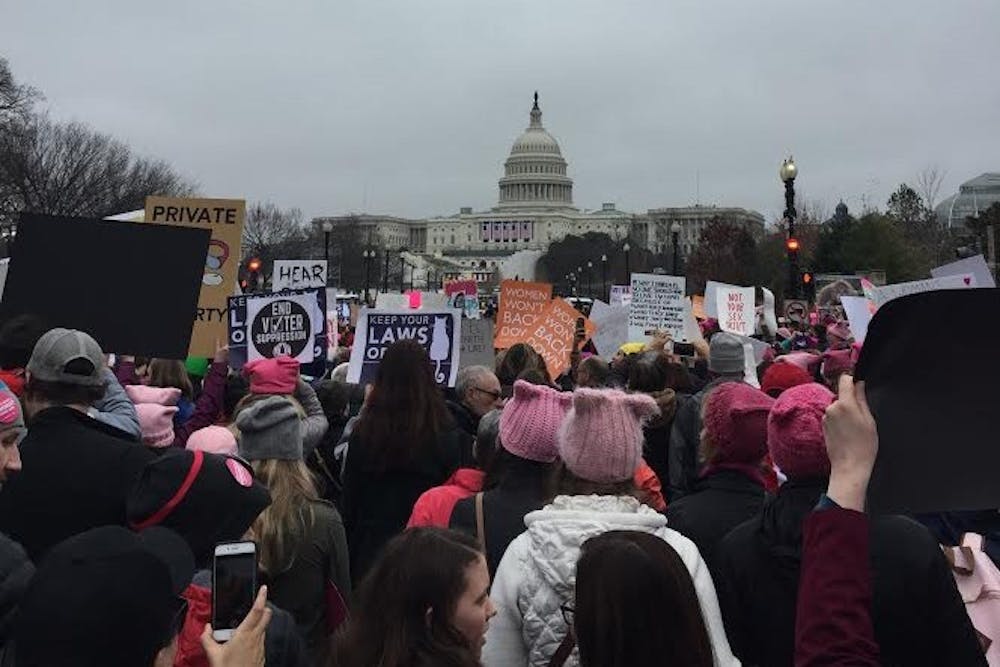The United Nations and many countries around the world, celebrate International Women’s Day on March 8. While some argue that the advertisements and other corporate outreach efforts for International Women’s Day are simply a pacifier while real action continues to be ignored, I believe that International Women’s Day can be used to give women greater platforms to advocate from.
International Women’s Day originated because of women’s action. The first National Women’s Day was organized in the United States by the Socialist Party of America in 1909 to honor female garment manufacturers who went on strike. It was first celebrated on March 8 in 1917, when Alexandra Kollontai organized a women’s demonstration that proved instrumental in overthrowing the Russian czar and started the Russian Revolution. However, because of its associations with socialist activism, it was only celebrated by socialist nations until the 1970s, when UN recognition made it more mainstream.
The value of International Women’s Day is in the momentary spotlight it places on women’s issues and women’s voices. It mirrors the goals of the #WeNeedDiverseBooks movement in its emphasis on making sure every kind of experience is seen in popular media. African American author Walter Dean Myers has described his negative experience growing up as a passionate reader who never saw himself reflected in the stories he read. Myers’ account and the emotional reactions to “Wonder Woman” and “Black Panther” emphasize the importance of representation and dialogue in progress.
However, such visibility must be a springboard for action continuing past a single day of the year. It is no accident that the U.S. Women’s National Soccer Team announced their lawsuit against the U.S. Soccer Federation for equal pay on International Women’s Day, or that “Captain Marvel”, only the second female-led superhero movie, was also released that day. The announcement of the U.S. Women’s National Team lawsuit was even bundled into an article about various events commemorating this year’s International Women’s Day, demonstrating the use of holiday to give women’s issues a greater platform.
We should be horrified that legal action to correct injustices toward women should need to be tied to a day often full of corporate apologetics to receive the kind of press it deserves. The case of the U.S. National Team is an obvious example of unequal pay for women, especially with startling statistics, like the fact that female players can only make maximum $4,950 per game, while male players can earn up to $13,166.
However, many of the problems facing women today are decidedly less captivating for media coverage. A recent piece pointed out the levels of danger women feel constantly, resulting in the “text me when you get home” ethic prominent among women. “Captain Marvel” is a huge win on the path to normalizing superhero movies centered on women, but trolls on the internet upset with star Brie Larson’s desire to be interviewed by a diverse press junket abused Rotten Tomatoes’ fan review feature to pan the film without having ever seen it. The backlash against Larson demonstrates the retaliatory culture against women who use their fame to speak their minds. Nor is this kind of retaliation against women who are featured in narrative unusual.
Daisy Ridley and Kelly Marie Tran, stars of “Star Wars: The Last Jedi”, quit social media after being harrassed by trolls, greatly decreasing their abilities to speak about what matters to them. These examples do not even begin to touch the culture of silencing women that the #MeToo movement is slowly revealing. While every instance of #MeToo is horrible because of the suffering of the individuals involved, the scale of the movement should demonstrate just how many women have felt silenced. The #MeToo movement is important because it provides an opportunity for women’s voices to be heard, but, like International Women’s Day, women should not need a holiday or a movement to be heard.
International Women’s Day was created in recognition of women working on a cause they believed in, trying to make the world sit up and pay attention just one day out of the year. The visibility of that day continues to be important, but the ultimate goal should be that women don’t need one day of visibility to appear in movies and advocate publically for their goals, but can appear every day, unremarkably.
None of this is to say that no progress has been made in providing women with platforms to speak from or that society doesn’t care about women’s voices writ large. However, the #MeToo movement has shocked in the scale of the apparently previously unspoken problems that women face. Clearly, more needs to be done to understand these issues, which are not just female issues but issues for society to grapple with. The best way to start is by listening to women’s concerns. International Women’s Day is a great platform from which to consciously rehabilitate the way in which society listens to women.
Katherine Viti is a Viewpoint Writer for The Cavalier Daily. She can be reached at opinion@cavalierdaily.com.







